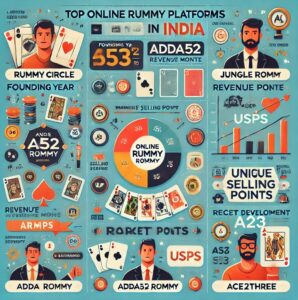Startup Strategy
“Poker, Fantasy Sports, Multi-Gaming, or Streaming – Who’s Leading India’s Gaming Revolution?”
- PokerBaazi – India’s top poker platform for high-stakes tournaments and cash games.
- Paytm First Games – A multi-gaming giant with fantasy sports, rummy, and casual games.
- My11Circle – A top fantasy sports platform with cash contests in cricket, football, and kabaddi.
- Loco – India’s premier game streaming and esports hub, creating opportunities for streamers and gamers.
As competition in India’s gaming industry intensifies, expect more strategic partnerships, AI-driven personalization, and expansion into international markets. The race is just getting started!








